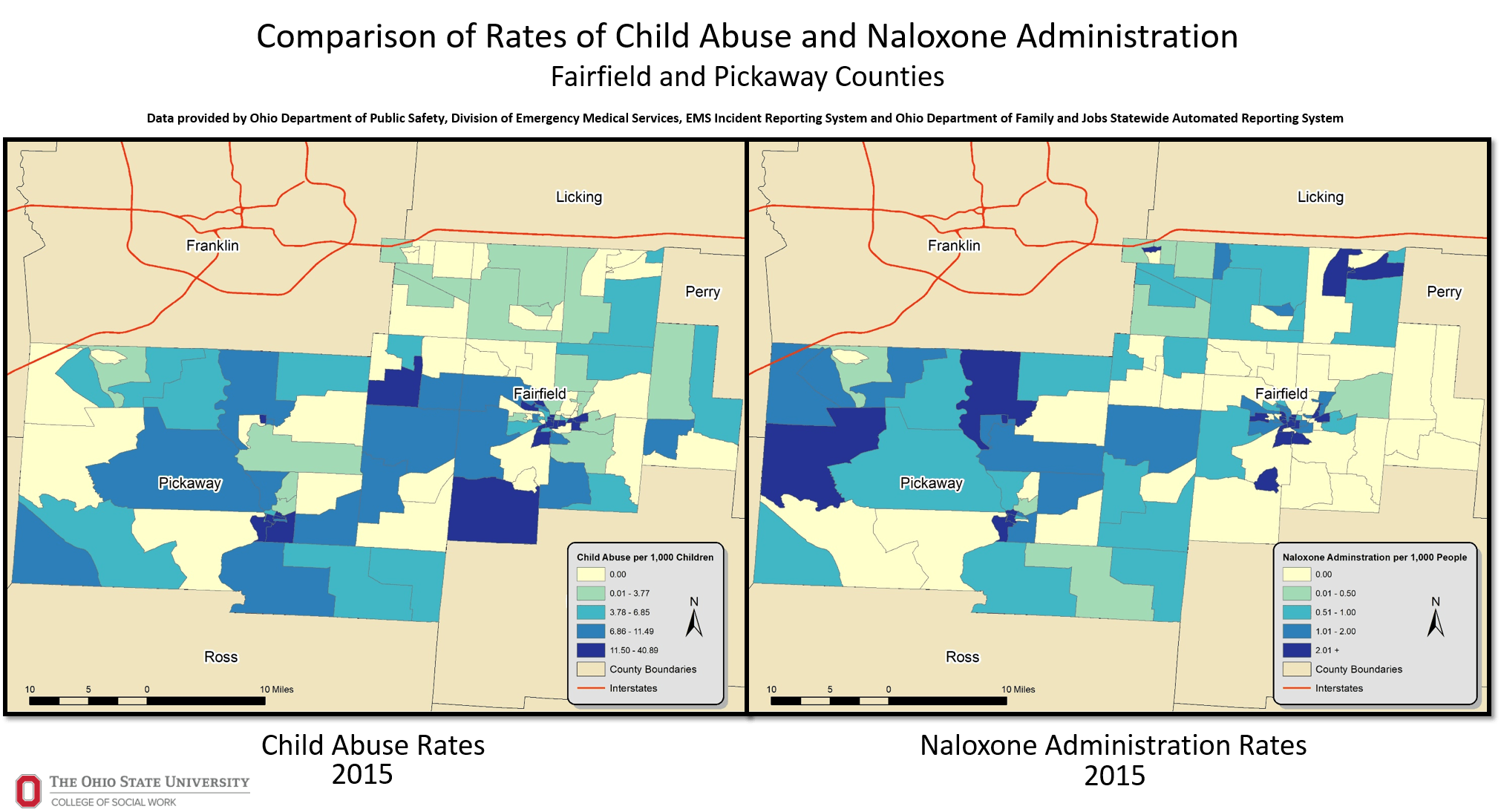The nationwide opioid epidemic has had a significant impact on Ohio families. In Ohio, 50% of families involved with Children Services have substance use problems. According to the Public Children’s Services Association of Ohio (PCSAO), extensive opioid use in Fairfield and Pickaway Counties has resulted in higher rates of Children Services involvement.
Why?
- Parental substance misuse increases the odds that a child will experience physical abuse and neglect
- Children exposed to parental substance misuse have a higher likelihood of having physical, psychological and cognitive problems
- Parental substance misuse requires additional services to better serve families who are struggling
- The growing demand for foster care services has overwhelmed Children Services in Fairfield and Pickaway counties
Enhancing Permanency in Children and Families (EPIC)
With funding from the Administration on Children, Youth, and Families (ACYF), The Ohio State University College of Social Work is collaborating with Job and Family Services for both Fairfield and Pickaway counties to implement the EPIC program. EPIC is designed to holistically address substance misuse and provide parenting services for families involved with the child welfare system.
EPIC aims to:
The program builds partnerships between the legal, medical, social, and child welfare systems to create an infrastructure and system of care for parents using substances and their children. EPIC is intended to be a long-term and significant component in the battle against the opioid epidemic in Ohio.
EPIC PROGRAMS
To meet these objectives, EPIC utilizes a three-pronged approach using evidence-based and informed programs.
Family Treatment Drug Court (FTDC) with Medication-Assisted Treatment (MAT)
- FTDCs reduce the time children spend in out-of-home placements and participating parents are more likely to reunify with their children.
- MAT, prioritized for FTDC participants, consists of behavioral therapy and medication and has been proven to improve the likelihood of achieving sobriety.
Peer Recovery Support (PRS)
- Peer recovery supporters mentor parents through the recovery process, increase access to substance use treatment, and reduce time children spend in out-of-home care.
Support for Kinship Caregivers
- Relatives taking care of affected children are provided training and resources to help better understand and meet the children’s needs.
More detailed information is available on this site about the programs and goals of EPIC.
For a downloadable/printable summary: Research Brief: EPIC Program (April 2018)


